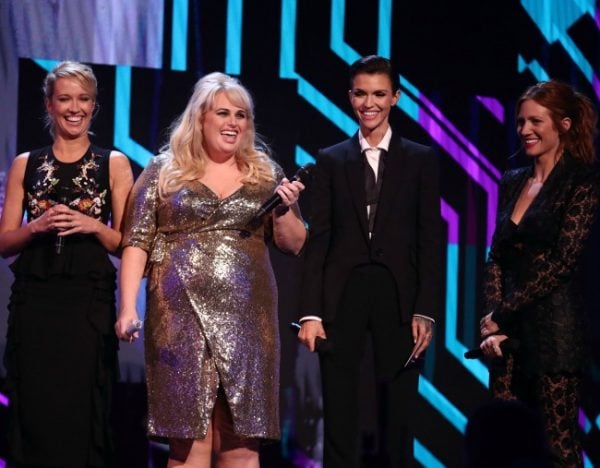Following Ruby Rose’s Pitch Perfect 3 tour, everyone is very concerned.
Sleep has been lost. Nails have been bitten. Anxious phone calls have been made.
You see, it’s Ruby Rose. Or more specifically, the fat content of Ruby Rose’s body.
“You look ill love,” one tweet read. “Ruby Rose looks a bit underweight…” another commented.
News publications have covered fans’ “health concerns” over Rose’s frame, and two weeks ago LA-based dietitian Lisa De Fazio analysed the actress and model’s weight, warning, “Her family and management team need to encourage her to gain some weight before it’s too late.”
De Fazio told NW she believes the 31-year-old weighs 44 kilograms, which would classify her as extremely underweight.



Top Comments
Apparently my original comment got lost in the ether (again).
Paraphrasing myself. It seems as though it's fine to 'comment' on men's appearance, I'm thinking particularly of the descriptions of President Trump on this website as "orange", his hair, and his "tiny hands", but don't dare say that Ruby Rose is too skinny!!!!
I've had this constantly throughout my whole life and it is truly hurtful - imagine being told near daily that you're ugly! That's what this is saying. It had a huge impact on me and actually only stopped when I started being mean back to make a point as politely asking was futile...
For example
Them: "ew you're so skinny eat a burger"... ME "Looks like you could do without one I'll have yours then!"
I never have worked out what people think they're going to achieve with such comments other than the other person feeling like crap!